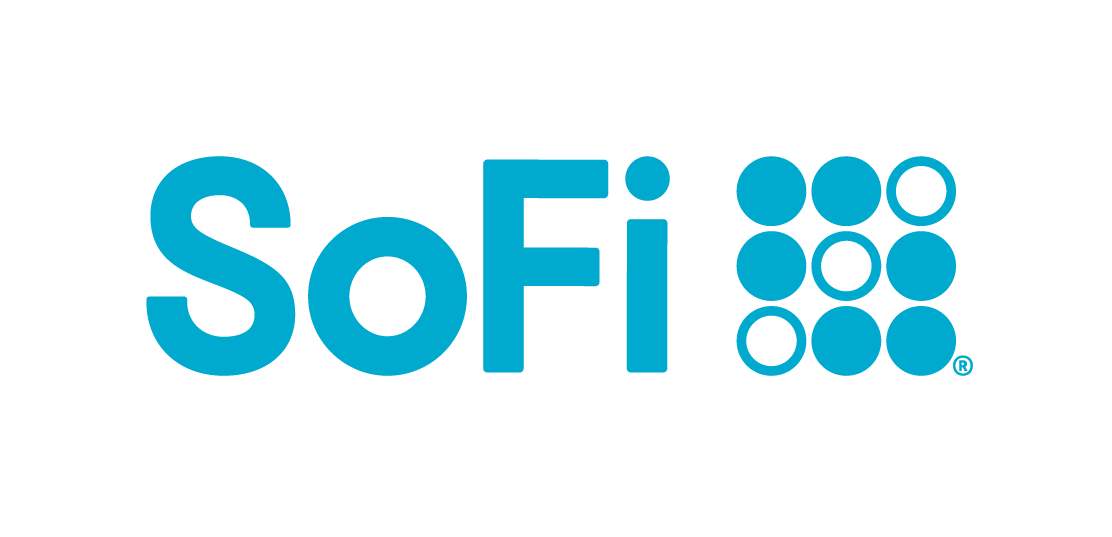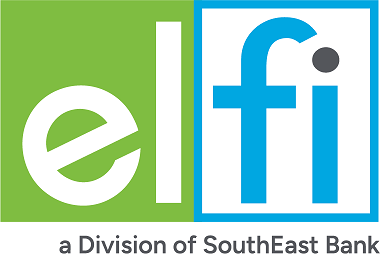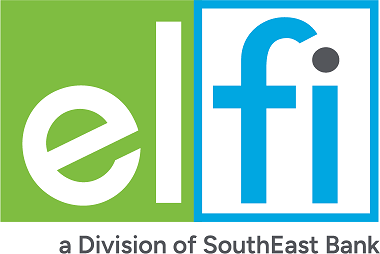Taking out student loans for pharmacy school can feel overwhelming, but it doesn’t have to be stressful. Pursuing a meaningful, socially impactful career is truly admirable. We’re here to provide you with the information you need, from average costs and financing options to tips for managing student loan debt.
Average Cost of Pharmacy School
The average cost of pharmacy school varies depending on if you’re an in-state or out-of-state student. For the top 10 pharmacy schools ranked by U.S. News & World Report, in-state tuition was $29,242/year on average, whereas out-of-state tuition averaged out at $46,790/year. If you factor in that most Pharm.D. programs are four (4) years, you get an average total cost of $111,613 for in-state students and $180,577 for out-of-state students at the top 10 schools.
Average Pharmacist Salary
The cost of pharmacy school can seem insurmountable, but according to the U.S. Bureau of Labor Statistics, the mean annual wage for pharmacists in 2019 was $125,510. That’s a salary hefty enough to make the cost of pharmacy school and any associated student loan debt feel like less of a burden.
Top Pharmacy Schools
We used the U.S. News & World Report's rankings to determine the top 10 pharmacy schools in the U.S. After that, we searched each pharmacy school’s website for the most recent information on in-state and out-of-state tuition and fees, length of program, etc.
| Rank | College | In-state total tuition and fees |
Out-of-state total tuition and fees |
Program length |
|---|---|---|---|---|
| 1 | University of North Carolina - Chapel Hill | $94,376 | $182,560 | 4 years |
| 2 | University of California - San Francisco | $160,704 | $`97,439 | 3 years |
| 3 | University of Michigan - Ann Arbor | $131,708 | $154,684 | 4 years |
| 4 | University of Minnesota | $111,456 | $163,200 | 4 years |
| 5 | University of Florida | $94,760 | $144,000 | 4 years |
| 6 | University of Kentucky | $114,648 | $214,744 | 4 years |
| 7 | Ohio State University | $100,852 | $195,636 | 4 years |
| 8 | Purdue University | $88,064 | $161,104 | 4 years |
| 9 | University of Illinois - Chicago | $133,368 | $195,440 | 4 years |
| 10 | University of Texas - Austin | $86,192 | $196,960 | 4 years |
Note: This chart is to help you get an idea of expected tuition and fees. Living expenses are not included in these estimates. Some pharmacy schools charge additional tuition for the last year of the program, and tuition costs may increase year over year. Contact the financial aid office for the most accurate information.
How to Pay for Pharmacy School
Remember that the tuition and fees for a student striving to get through a Pharm.D. program could be a six-figure cost. Sure, a six-figure salary after landing a job in the market can help, but there are things that aspiring pharmacists can do now to reduce how much they owe and minimize out-of-pocket expenses. Future pharmacists can experience financial relief with scholarships, grants, and even student loans. We outline these options next.
Pharmacy School Scholarships
APhA Student Scholarship Program
For students who complete at least one year of pharmacy school, earn a GPA of at least 2.75, and are active members of the APhA Academy of Student Pharmacists for students in the U.S. and Puerto Rico.
Health Resources & Services Administration (HRSA) Scholarships
Through the National Health Services Corps Scholarship Program (NHSC SP) initiative, pharmacy students can receive a full year of scholarship support in exchange for committing to serve a minimum of two years at an NHSC-approved site in a Health Professional Shortage Area.
TYLENOL Future Care Scholarship
Through the National Health Services Corps Scholarship Program (NHSC SP) initiative, pharmacy students can receive a full year of scholarship support in exchange for committing to serve a minimum of two years at an NHSC-approved site in a Health Professional Shortage Area.
CVS Health Minority Scholarship for Pharmacy Students
CVS Health began sponsoring five (5) scholarships of $8,000 to underrepresented pharmacy students in 2019. Applicants are evaluated based on their leadership, academic merit, and dedication to advancing the pharmacy profession and patient care.
American Society of Health System Pharmacists (ASHP) Student Leadership Award
The ASHP Research and Education Foundation awards up to twelve (12) $2,000 cash awards annually through this scholarship program. Pharmacy students who have completed at least one academic year in their professional pharmacy program can apply. Applicants must also be ASHP members in good standing. Learn more
National Community Pharmacists Association (NCPA) Foundation Scholarships
The NCPA Foundation hosts a variety of scholarships for students interested in independent pharmacy who are within 24 months of graduation. We’ve listed out the individual scholarships below.
- Presidential Scholarships - This scholarship helps pay for pharmacy school for students who demonstrate leadership, achievement, academic merit, involvement in extracurricular activities, and an interest in independent pharmacy. At least five (5) scholarships of $5,000 will be awarded to recipients. Learn more on the scholarship website.
- J.C. & Rheba Cobb Memorial Scholarship - This $2,000 scholarship will be awarded to one pharmacy student who demonstrates interest in government affairs, leadership qualities, and academic achievement. Applicants will have to write a letter and describe their school and civic accomplishments and future goals, interest in independent pharmacy, and interest in government activities. Learn more on the scholarship website.
- Willard B. Simmons Memorial Scholarship - This scholarship is worth $2,000 and will be awarded to one pharmacy student who demonstrates interest in independent pharmacy management, leadership qualities, and academic achievement. Applicants will have to write a letter and describe their school and civic accomplishments and future goals, interest in independent pharmacy, and interest in independent pharmacy management and entrepreneurism. Learn more on the scholarship website.
- Partners in Pharmacy - This $2,000 scholarship will be awarded to one pharmacy student who demonstrates interest in independent pharmacy management, leadership qualities, and academic achievement. Applicants will have to write a letter and describe their school and civic accomplishments and future goals, and interest in independent pharmacy as a career option. Learn more on the scholarship website.
- Neil Pruitt Sr. Memorial Scholarship - This $2,500 scholarship will be awarded to one pharmacy student who demonstrates interest in entrepreneurism, leadership qualities, and academic achievement. Applicants will have to write a letter and describe their school and civic accomplishments and future goals, and interest in independent pharmacy, and interest in entrepreneurism. Learn more on the scholarship website.
Indian Health Service Scholarship Program
Three (3) scholarships (listed below) are funded by the Indian Health Service (IHS) and awarded to Alaska Native/American Indian students training to become health professionals in Indian health programs. Also, scholarship recipients must be members or descendants of federally recognized, state-recognized or terminated Tribes.
- Preparatory Scholarship - This scholarship provides financial assistance to qualified American Indian/Alaska Native undergraduate students enrolled in preparatory courses or prerequisite courses leading to matriculating into an eligible health professions degree program, such as pharmacy.
- Pre-Graduate Scholarship - This scholarship assists qualified Alaska Native/American Indian undergraduate students taking courses leading to a bachelor's degree in pre-medicine, pre-dentistry, pre-podiatry and other applicable subjects.
- Health Professions Scholarship - This scholarship financially assists qualified American Indian/Alaska Native undergraduate and graduate students. In exchange for this scholarship, recipients agree to serve in full-time clinical practice after completing their academic or post-graduate clinical training.
For full details on the IHS scholarship program and these scholarships, visit the website.
American Foundation for Pharmaceutical Education (AFPE)
The AFPE advances its mission by supporting first-year graduate students, Pharm.D. students, pre-doctoral candidates, as well as faculty members, through fellowships and grants that could help pay for pharmacy school.
- First-Year Graduate School Fellowships in Pharmaceutical Science - These fellowships are for students planning to pursue a Ph.D. in pharmaceutical science, who are also members of the one of the following pharmacy societies: Rho Chi, Phi Lambda Sigma, or Kappa Epsilon.
- Pre-Doctoral Fellowship in Pharmaceutical Sciences - This fellowship comes with a $10,000 stipend is for full-time students in a U.S. accredited Ph.D. program in the pharmaceutical sciences. Eligible applicants must be U.S. citizens or permanent residents, have completed the equivalent of 3 full semesters and be awarded their Ph.D. degree within three (3) years.
- Dr. Paul B. Myrdal Memorial Pre-Doctoral Fellowship in Pharmaceutics - This $10,000 fellowship requires applicants to meet the same criteria for the Pre-Doctoral Fellowship. The difference here is that applicants must be researching pharmaceutics as well.
- Herb and Nina Demuth Memorial Award - This $10,000 fellowship requires applicants to meet the same criteria for the Pre-Doctoral Fellowship too, but applicants must also be researching parenteral drugs.
- Underrepresented Minority Gateway Award - This $5,000 scholarship is for minority pharmacy students enrolled in an ACPE accredited pharmacy school who are interested in participating in a faculty-mentored research project. Students may be pursuing their bachelor's degree or Pharm.D. degree. Please visit the website for more details.
There are plenty of scholarships and fellowships that help pay for a pharmacy school students education, and while grants are harder to come by, remember there are programs like HRSA (Health and Resource Services Administration)that will pay for a portion of your tuition in exchange for a service commitment.
Unfortunately, professional degree students are not eligible for the federal Pell Grant, which is only available for undergraduate students. Though they still may receive federal Direct Unsubsidized loans. In addition, our recommendation when applying for different pharmacy schools is to reach out to your school’s financial aid department to see if there are any additional financial aid opportunities.
Pharmacy School Student Loans
Seeing the cost of pharmacy school can be cause for concern, but there are several ways to go about paying for it while trying to keep student loan debt at bay. We’ve already taken a look at scholarships and fellowships, and now we want to show you some of your student loan options. Keep reading as we break down the differences between federal loans, HRSA loans, and private student loans.
Federal Student Loans for Pharmacy Students
Direct Unsubsidized Loans
You can receive Direct Unsubsidized Loans, sometimes called Stafford Loans or Direct Stafford Loans, without demonstrating financial need. These direct unsubsidized loans are exactly that - unsubsidized, which means that you must pay all of the accrued interest from the date of disbursement. This is unlike direct subsidized loans you may have received as an undergraduate student, unfortunately these loans are not an option for graduate or professional students.
Health professional students (pharmacy school students included) may borrow up to $40,500 per year. The aggregate borrowing limit is $224,000 and the fixed interest rate for the 2025 - 2026 academic year (for loans first disbursed between July 1, 2025 and June 30, 2026) is 7.94%. There is also an origination fee, or “loan fee,” to borrow funds, which is 1.057%*.
Grad PLUS Loans
A Direct Grad PLUS Loan is a federal loan available to graduate and professional school students. When you get a PLUS Loan, your lender is the U.S. Department of Education (ED). To receive a PLUS Loan, you must have a credit check to determine if you have an adverse credit history. If you have an adverse credit history and do not meet the standards put in place, you might still be eligible if you are able to successfully meet the criteria for an exceptional circumstances appeal or apply with a cosigner who does not have adverse credit.
With Direct PLUS Loans, you can borrow up to the cost of attendance minus other aid. The fixed interest rate is 8.94%, and the origination fee is 4.228%* for academic year 2025 - 2026.
*For federal loans disbursed from Oct. 1, 2024 - Sept. 30, 2025
Health and Resource Services Administration (HRSA) Loans
HRSA Loans, or Health Resources and Services Administration Loans, are long-term and low-interest loans offered by schools to students with financial needs pursuing a degree in the health profession. Longer terms and low-interest rates make these loans more attractive for aspiring health professionals, like pharmacists. There are two (2) programs:
Health Professions Student Loans (HPSL)
These loans are for full-time or part-time students pursuing one of the following degrees: Doctor of Dentistry, Bachelor or Doctor of Science in Pharmacy, Doctor of Podiatric Medicine, Doctor of Optometry, and Doctor of Veterinary Medicine. A school is eligible as long as it offers degrees in one of the following disciplines: Podiatry, Dentistry, Optometry, Pharmacy, and Veterinary.
Loans for Disadvantaged Students (LDS)
These federal loans are available to students pursuing one of the following degrees: Doctor of Allopathic Medicine, Doctor of Osteopathic Medicine, Doctor of Dentistry, Bachelor or Doctor of Science in Pharmacy, Doctor of Podiatric Medicine, Doctor of Optometry, and Doctor of Veterinary Medicine. A school is eligible as long as it offers degrees in one of the following disciplines: Allopathic/Osteopathic, Podiatry, Dentistry, Optometry, Pharmacy, and Veterinary.
Private Student Loans for Pharmacy School
For students attending pharmacy school, private student loans may be essential when scholarships and federal loans do not cover all of your costs. Believe it or not, private loans present some unique benefits including flexible payment terms, competitive interest rates, and low or zero application and origination fees.
Start comparing lenders to find the student loan that is right for you.
How to Get Student Loans for Pharmacy School
To get student pharmacy school loans, the first thing you want to do is fill out the Free Application for Federal Student Aid (FAFSA®). This will allow you to receive federal student aid to help you pay for pharmacy school. After you complete the FAFSA, you want to wait for your financial aid award letter from your school which will detail your federal student loan eligibility. If you need help filling out the FAFSA, make sure you check out our guide to filing the FAFSA.
If federal loans won’t cover all of your costs, you can use private student pharmacy school loans to take care of the rest. Applying for pharmacy school loans will vary from lender to lender, but most applications can be completed online within just a few minutes.
You want to be sure to compare lenders. Lenders offer different interest rates, income-driven repayment terms, and so on. We like to keep it simple. To apply for a private student loan, just type in your school and see which lenders or financial institutions may work with your school.
Pharmacy School Loan Forgiveness Programs
With the cost of pharmacy school being so high, thinking about student loan forgiveness makes total sense, and we're glad that you're thinking ahead. Depending on the loans that you use, this option may save you thousands of dollars. Below are some student loan debt programs that might help you get your monthly payments.
Public Service Loan Forgiveness for Pharmacists (PSLF) - The PSLF Program enables students who borrowed Federal Direct student loans to have the outstanding balance on their direct loans forgiven after making 120-qualifying monthly payments while working full-time at an eligible employer, under an eligible income-driven repayment plan.
State-Based Programs - Sometimes states pay a portion of your student loans for working in an HPSA, or Health Professional Shortage Area. See if your state offers any of these options for pharmacists. If you're willing to relocate for a certain period of time, look into states you wouldn't mind working in.
National Institutes of Health (NIH) Loan Repayment Programs - In exchange for committing to conduct NIH related research, qualified health professionals can have up to $50,000 of their qualified educational debt repaid per year.
NHSC Substance Use Disorder Workforce Loan Repayment Program - The program was designed to recruit health professionals to serve in neglected areas to increase SUD treatment and prevent overdoses. Pharmacists are eligible for this program as long as they meet the qualifications for the program. Visit the website to learn more.
Active Duty Health Professions Loan Repayment Program - Serving in the U.S. military as a pharmacist could allow you to have a maximum of $40,000/year paid towards your student loans for pharmacy school. The amount repaid is contingent upon your length of service.
Pharmacy School Loan Repayment
Repaying your student loans for pharmacy school is the goal, and we want to help you accomplish that. The lenders we work with are some of the best in the industry, and you can explore various refinancing options, rates, and more. Refinancing allows you to combine multiple student loans into one and may allow you to save money with a lower interest rate on your monthly payments. You can learn more about your options by reviewing our preferred lenders.
Federal consolidation and private student loan refinancing were not created equal. In fact, refinancing student loans is the one way you can combine federal and private loans, or have a parent released from being a cosigner on your loan(s).
What to Read Next
Best Private Student Loans for June 2025
Financial Aid for Graduate School
How Does Student Loan Interest Work



















